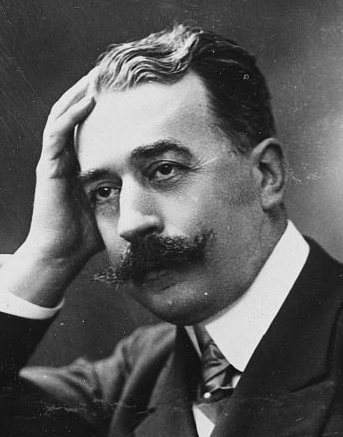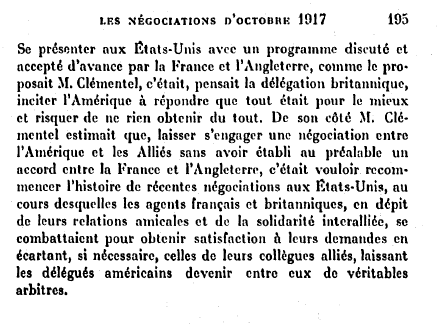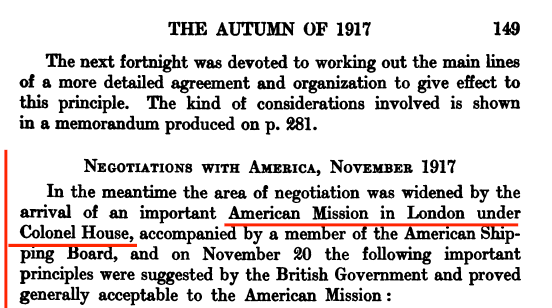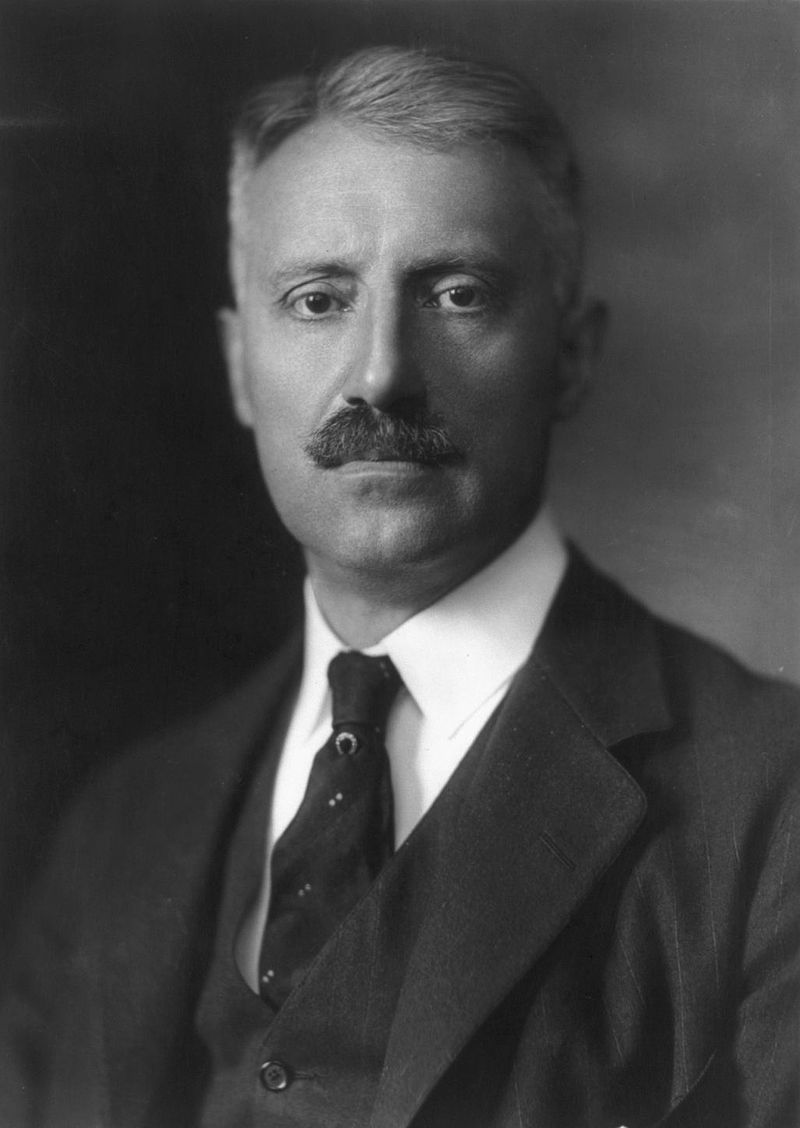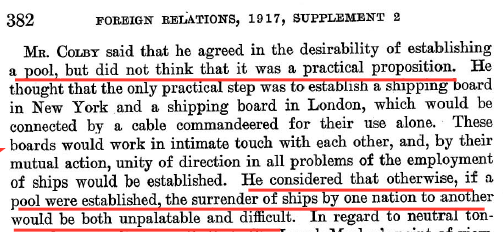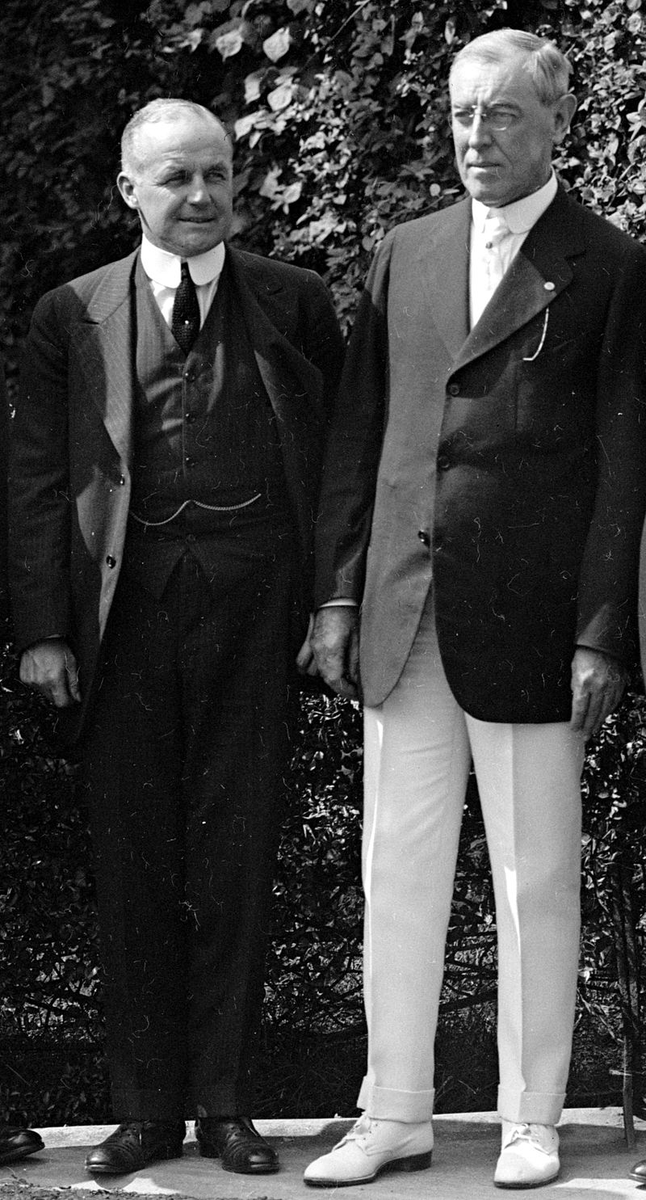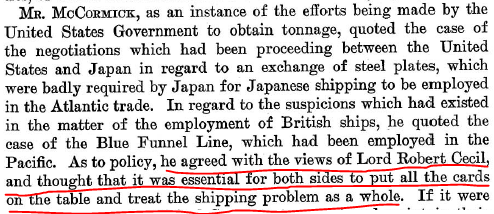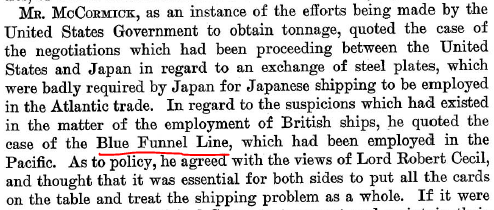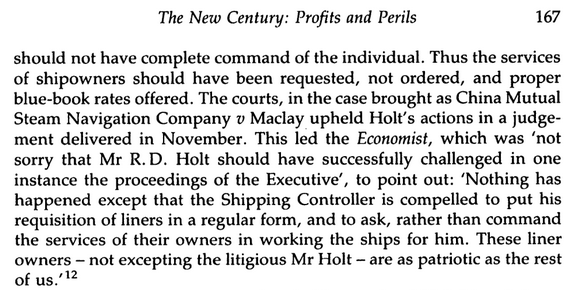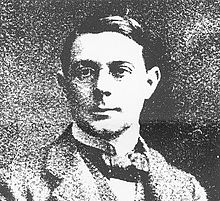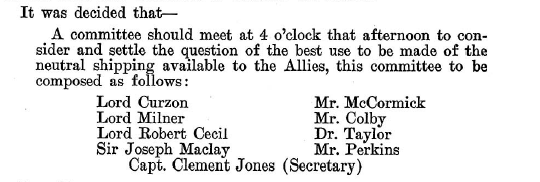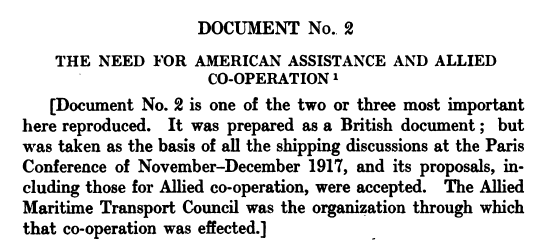Writing historical case studies is hard work.
It requires carefully "connecting the dots" by combing secondary & primary sources (assuming you can even access them during this time of library & archive closures).
Here& #39;s an example of how I do it.
[THREAD]
It requires carefully "connecting the dots" by combing secondary & primary sources (assuming you can even access them during this time of library & archive closures).
Here& #39;s an example of how I do it.
[THREAD]
I& #39;m writing a chapter for my book project with @rosellacappella on how the templates for modern international economic institutions were developed during World War I.
This chapter deals with the creation of the Allied Maritime Transport Council in 1917.
For background, the AMTC was an international organization formed in late 1917 that controlled and coordinated the supply of ALL goods moving from https://abs.twimg.com/emoji/v2/... draggable="false" alt="🇺🇸" title="Flag of United States" aria-label="Emoji: Flag of United States"> to the European Allies (
https://abs.twimg.com/emoji/v2/... draggable="false" alt="🇺🇸" title="Flag of United States" aria-label="Emoji: Flag of United States"> to the European Allies ( https://abs.twimg.com/emoji/v2/... draggable="false" alt="🇬🇧" title="Flag of United Kingdom" aria-label="Emoji: Flag of United Kingdom">
https://abs.twimg.com/emoji/v2/... draggable="false" alt="🇬🇧" title="Flag of United Kingdom" aria-label="Emoji: Flag of United Kingdom"> https://abs.twimg.com/emoji/v2/... draggable="false" alt="🇫🇷" title="Flag of France" aria-label="Emoji: Flag of France">
https://abs.twimg.com/emoji/v2/... draggable="false" alt="🇫🇷" title="Flag of France" aria-label="Emoji: Flag of France"> https://abs.twimg.com/emoji/v2/... draggable="false" alt="🇮🇹" title="Flag of Italy" aria-label="Emoji: Flag of Italy">)
https://abs.twimg.com/emoji/v2/... draggable="false" alt="🇮🇹" title="Flag of Italy" aria-label="Emoji: Flag of Italy">)
For background, the AMTC was an international organization formed in late 1917 that controlled and coordinated the supply of ALL goods moving from
I& #39;m trying to figure out "when" and "why"
- "When" exactly was the decision made to form the AMTC?
- "Why" did the Americans, who had all the leverage in the negotiations, agree to do it?
- "When" exactly was the decision made to form the AMTC?
- "Why" did the Americans, who had all the leverage in the negotiations, agree to do it?
With respect to "When", a good starting point is to read secondary sources, namely memoirs.
We started with Jean Monnet, who was a junior participant in the negotiations. https://www.google.com/books/edition/Memoirs_Jean_Monnet/fvh0DQAAQBAJ?hl=en&gbpv=1&printsec=frontcover">https://www.google.com/books/edi...
We started with Jean Monnet, who was a junior participant in the negotiations. https://www.google.com/books/edition/Memoirs_Jean_Monnet/fvh0DQAAQBAJ?hl=en&gbpv=1&printsec=frontcover">https://www.google.com/books/edi...
He doesn& #39;t actually mention the negotiations to create the AMTC. Instead, he talks about how a prior agreement -- reach on Nov 3 b/w  https://abs.twimg.com/emoji/v2/... draggable="false" alt="🇬🇧" title="Flag of United Kingdom" aria-label="Emoji: Flag of United Kingdom">
https://abs.twimg.com/emoji/v2/... draggable="false" alt="🇬🇧" title="Flag of United Kingdom" aria-label="Emoji: Flag of United Kingdom"> https://abs.twimg.com/emoji/v2/... draggable="false" alt="🇫🇷" title="Flag of France" aria-label="Emoji: Flag of France">
https://abs.twimg.com/emoji/v2/... draggable="false" alt="🇫🇷" title="Flag of France" aria-label="Emoji: Flag of France"> https://abs.twimg.com/emoji/v2/... draggable="false" alt="🇮🇹" title="Flag of Italy" aria-label="Emoji: Flag of Italy"> -- set in motion what eventually became the AMTC. That agreement was indeed important, but it left out
https://abs.twimg.com/emoji/v2/... draggable="false" alt="🇮🇹" title="Flag of Italy" aria-label="Emoji: Flag of Italy"> -- set in motion what eventually became the AMTC. That agreement was indeed important, but it left out  https://abs.twimg.com/emoji/v2/... draggable="false" alt="🇺🇸" title="Flag of United States" aria-label="Emoji: Flag of United States">
https://abs.twimg.com/emoji/v2/... draggable="false" alt="🇺🇸" title="Flag of United States" aria-label="Emoji: Flag of United States">
Clementel also wrote a memoir, one that is packed with details about the various negotiations b/w the allies. https://www.google.com/books/edition/La_France_Et_La_Politique_%C3%89conomique_In/k12dtwEACAAJ?hl=en">https://www.google.com/books/edi...
There& #39;s one small hitch...it& #39;s only available in French  https://abs.twimg.com/emoji/v2/... draggable="false" alt="🤦♂️" title="Man facepalming" aria-label="Emoji: Man facepalming">
https://abs.twimg.com/emoji/v2/... draggable="false" alt="🤦♂️" title="Man facepalming" aria-label="Emoji: Man facepalming">
Time to roll up my sleeves and do some intensive language "reading proficiency" training https://abs.twimg.com/emoji/v2/... draggable="false" alt="💪" title="Flexed biceps" aria-label="Emoji: Flexed biceps">
https://abs.twimg.com/emoji/v2/... draggable="false" alt="💪" title="Flexed biceps" aria-label="Emoji: Flexed biceps">
[Oh, and MAYBE a little help from Google translate https://abs.twimg.com/emoji/v2/... draggable="false" alt="😉" title="Winking face" aria-label="Emoji: Winking face">]
https://abs.twimg.com/emoji/v2/... draggable="false" alt="😉" title="Winking face" aria-label="Emoji: Winking face">]
Time to roll up my sleeves and do some intensive language "reading proficiency" training
[Oh, and MAYBE a little help from Google translate
Anyhow, Clementel& #39;s account proves super helpful. He also mentions the Nov 3 agreement: indeed, he dedicates a whole chapter to those negotiations
But unlike Monnet, he ends his account with a recognition that gaining American buy-in was not going to be simple
Clementel then describes the actual negotiations that produced the AMTC: The December 1917 Paris Conference
Another useful account is from Monnet& #39;s British counter-part, Arthur Salter (who Monnet also mentions in the above passage from his memoir)
Salter wrote his own account of his wartime efforts, "Allied Shipping Control" (published immediately after the war in 1921) https://www.google.com/books/edition/Allied_Shipping_Control/A5wTAAAAYAAJ?hl=en&gbpv=1&printsec=frontcover">https://www.google.com/books/edi...
Like Clementel, Salter also brings up the December Paris Conference is the negotiations that achieved American buy-in and created the AMTC
But here is where things become interesting. Between discussing the Nov 3 agreement and the Paris Conference, Salter also brings up a Nov 20 meeting b/w the British War Cabinet and the American Mission
So Salter is suggesting that the Americans and British held a meeting prior to the Paris conference and it was THAT meeting where the Americans bought into the scheme.
This suggests that the "When" was this Nov 20 meeting (not the Nov 3 agreement, nor the Paris conference)
This suggests that the "When" was this Nov 20 meeting (not the Nov 3 agreement, nor the Paris conference)
Now for the "why": Why did the Americans buy-in during this meeting?
To answer that question, we turned to a key starting point when exploring American Foreign policy decision making: FRUS!
https://history.state.gov/historicaldocuments/about-frus">https://history.state.gov/historica...
To answer that question, we turned to a key starting point when exploring American Foreign policy decision making: FRUS!
https://history.state.gov/historicaldocuments/about-frus">https://history.state.gov/historica...
Note: I particularly like the online FRUS collection maintained by @UWDigiCollec
https://uwdc.library.wisc.edu/collections/frus/">https://uwdc.library.wisc.edu/collectio...
https://uwdc.library.wisc.edu/collections/frus/">https://uwdc.library.wisc.edu/collectio...
As you can imagine, FRUS has A LOT of documents for the year 1917 (yeah, that year was kind of a big deal)
Part I of Supplement 2 has the complete reports compiled by the American Mission to Europe in November and December of 1917 (starting on page 334)
This report contains the complete notes of the November 20 meeting between the American mission and the British War Cabinet (p 366)
What gets interesting is when Bainbridge Colby, Representative of the US Shipping board (and would become Secretary of State in 1920), spoke up. He laid out the American view about how to handle the shipping needs of the US and the allies.
So no American buy-in, right?
Not quite.
Vance McCormick, Chairman of the US War Trade Board, then spoke up
Not quite.
Vance McCormick, Chairman of the US War Trade Board, then spoke up
McCormick was more inclined to go along with the British scheme of pooling all the tonnage together and coordinating it as a whole.
But McCormick had a question: what& #39;s up with that whole "Blue Funnel Line" situation
That got my attention. What the heck in the "Blue Funnel Line"?
Well, I found this book by the economic historian Malcolm Falkus #v=onepage&q&f=false">https://books.google.com/books?hl=en&lr=&id=IMm-DAAAQBAJ&oi=fnd&pg=PR8&dq=Blue+Funnel+Line+legend&ots=DJAZ9JeFCh&sig=yq8wDn_nRlCyVmNeb78VeTHffdU #v=onepage&q&f=false">https://books.google.com/books...
Well, I found this book by the economic historian Malcolm Falkus #v=onepage&q&f=false">https://books.google.com/books?hl=en&lr=&id=IMm-DAAAQBAJ&oi=fnd&pg=PR8&dq=Blue+Funnel+Line+legend&ots=DJAZ9JeFCh&sig=yq8wDn_nRlCyVmNeb78VeTHffdU #v=onepage&q&f=false">https://books.google.com/books...
I noted that a @TheEconomist article from the time is quoted. Therefore, I went to the @UChicagoLibrary website and pulled up @TheEconomist archives.
I soon found the article from the Nov 24, 1917 issue
I soon found the article from the Nov 24, 1917 issue
Basically, the owner of the Blue Funnel Line, Richard Holt, had sued the British government over the Defence of the Realm Act (specifically, the Maclay, the head of the British Shipping Comptroller). The claim was that liners should be paid "blue-book rates"
Holt won the case and the British government relented.
Back to the negotiations with the Americans, Maclay tried to explain away the whole issue
Back to the negotiations with the Americans, Maclay tried to explain away the whole issue
But McCormick then raised a critical point, namely he thought the whole issue could have been avoided if a single organization handled shipping between the Associated nations
Hearing McCormick& #39;s statement, British Prime Minister Lloyd George suggested that a smaller group meet that afternoon hash out the details
The day after that meeting, a key document was written up. Salter includes the document in the appendix of his book. As he says, this document served as the basis for the subsequent Paris negotiations.
So that is how I traced the "when" and "why" of the AMTC& #39;s creation.
Hopefully graduate students (and others) can find this a helpful "behind the scenes look" at how historical case studies are made.
[END]
Hopefully graduate students (and others) can find this a helpful "behind the scenes look" at how historical case studies are made.
[END]

 Read on Twitter
Read on Twitter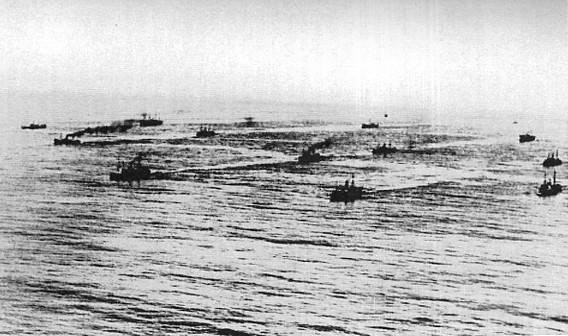 to the European Allies (https://abs.twimg.com/emoji/v2/... draggable="false" alt="🇬🇧" title="Flag of United Kingdom" aria-label="Emoji: Flag of United Kingdom">https://abs.twimg.com/emoji/v2/... draggable="false" alt="🇫🇷" title="Flag of France" aria-label="Emoji: Flag of France">https://abs.twimg.com/emoji/v2/... draggable="false" alt="🇮🇹" title="Flag of Italy" aria-label="Emoji: Flag of Italy">)" title="This chapter deals with the creation of the Allied Maritime Transport Council in 1917.For background, the AMTC was an international organization formed in late 1917 that controlled and coordinated the supply of ALL goods moving from https://abs.twimg.com/emoji/v2/... draggable="false" alt="🇺🇸" title="Flag of United States" aria-label="Emoji: Flag of United States"> to the European Allies (https://abs.twimg.com/emoji/v2/... draggable="false" alt="🇬🇧" title="Flag of United Kingdom" aria-label="Emoji: Flag of United Kingdom">https://abs.twimg.com/emoji/v2/... draggable="false" alt="🇫🇷" title="Flag of France" aria-label="Emoji: Flag of France">https://abs.twimg.com/emoji/v2/... draggable="false" alt="🇮🇹" title="Flag of Italy" aria-label="Emoji: Flag of Italy">)" class="img-responsive" style="max-width:100%;"/>
to the European Allies (https://abs.twimg.com/emoji/v2/... draggable="false" alt="🇬🇧" title="Flag of United Kingdom" aria-label="Emoji: Flag of United Kingdom">https://abs.twimg.com/emoji/v2/... draggable="false" alt="🇫🇷" title="Flag of France" aria-label="Emoji: Flag of France">https://abs.twimg.com/emoji/v2/... draggable="false" alt="🇮🇹" title="Flag of Italy" aria-label="Emoji: Flag of Italy">)" title="This chapter deals with the creation of the Allied Maritime Transport Council in 1917.For background, the AMTC was an international organization formed in late 1917 that controlled and coordinated the supply of ALL goods moving from https://abs.twimg.com/emoji/v2/... draggable="false" alt="🇺🇸" title="Flag of United States" aria-label="Emoji: Flag of United States"> to the European Allies (https://abs.twimg.com/emoji/v2/... draggable="false" alt="🇬🇧" title="Flag of United Kingdom" aria-label="Emoji: Flag of United Kingdom">https://abs.twimg.com/emoji/v2/... draggable="false" alt="🇫🇷" title="Flag of France" aria-label="Emoji: Flag of France">https://abs.twimg.com/emoji/v2/... draggable="false" alt="🇮🇹" title="Flag of Italy" aria-label="Emoji: Flag of Italy">)" class="img-responsive" style="max-width:100%;"/>
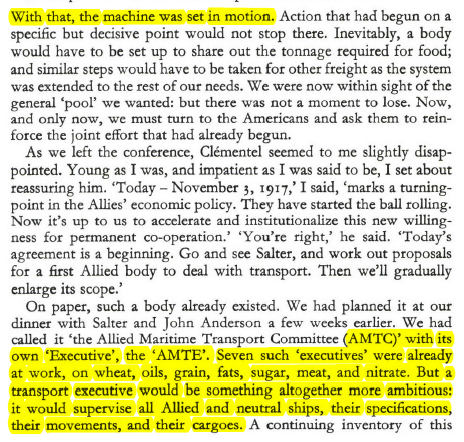 https://abs.twimg.com/emoji/v2/... draggable="false" alt="🇫🇷" title="Flag of France" aria-label="Emoji: Flag of France">https://abs.twimg.com/emoji/v2/... draggable="false" alt="🇮🇹" title="Flag of Italy" aria-label="Emoji: Flag of Italy"> -- set in motion what eventually became the AMTC. That agreement was indeed important, but it left out https://abs.twimg.com/emoji/v2/... draggable="false" alt="🇺🇸" title="Flag of United States" aria-label="Emoji: Flag of United States">" title="He doesn& #39;t actually mention the negotiations to create the AMTC. Instead, he talks about how a prior agreement -- reach on Nov 3 b/w https://abs.twimg.com/emoji/v2/... draggable="false" alt="🇬🇧" title="Flag of United Kingdom" aria-label="Emoji: Flag of United Kingdom">https://abs.twimg.com/emoji/v2/... draggable="false" alt="🇫🇷" title="Flag of France" aria-label="Emoji: Flag of France">https://abs.twimg.com/emoji/v2/... draggable="false" alt="🇮🇹" title="Flag of Italy" aria-label="Emoji: Flag of Italy"> -- set in motion what eventually became the AMTC. That agreement was indeed important, but it left out https://abs.twimg.com/emoji/v2/... draggable="false" alt="🇺🇸" title="Flag of United States" aria-label="Emoji: Flag of United States">" class="img-responsive" style="max-width:100%;"/>
https://abs.twimg.com/emoji/v2/... draggable="false" alt="🇫🇷" title="Flag of France" aria-label="Emoji: Flag of France">https://abs.twimg.com/emoji/v2/... draggable="false" alt="🇮🇹" title="Flag of Italy" aria-label="Emoji: Flag of Italy"> -- set in motion what eventually became the AMTC. That agreement was indeed important, but it left out https://abs.twimg.com/emoji/v2/... draggable="false" alt="🇺🇸" title="Flag of United States" aria-label="Emoji: Flag of United States">" title="He doesn& #39;t actually mention the negotiations to create the AMTC. Instead, he talks about how a prior agreement -- reach on Nov 3 b/w https://abs.twimg.com/emoji/v2/... draggable="false" alt="🇬🇧" title="Flag of United Kingdom" aria-label="Emoji: Flag of United Kingdom">https://abs.twimg.com/emoji/v2/... draggable="false" alt="🇫🇷" title="Flag of France" aria-label="Emoji: Flag of France">https://abs.twimg.com/emoji/v2/... draggable="false" alt="🇮🇹" title="Flag of Italy" aria-label="Emoji: Flag of Italy"> -- set in motion what eventually became the AMTC. That agreement was indeed important, but it left out https://abs.twimg.com/emoji/v2/... draggable="false" alt="🇺🇸" title="Flag of United States" aria-label="Emoji: Flag of United States">" class="img-responsive" style="max-width:100%;"/>
